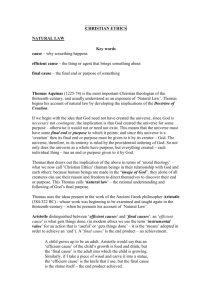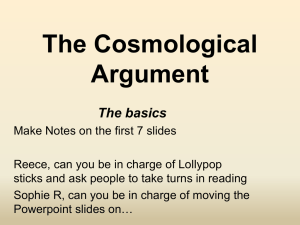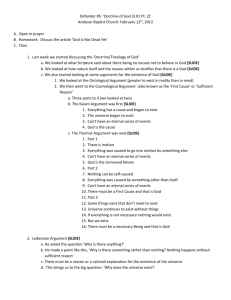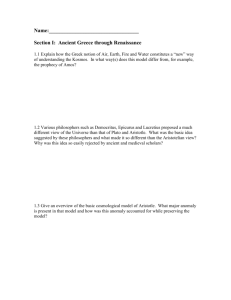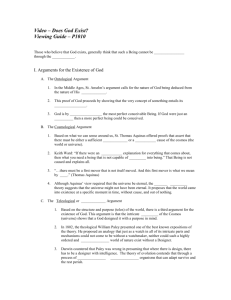The Development Of Cosmology
advertisement
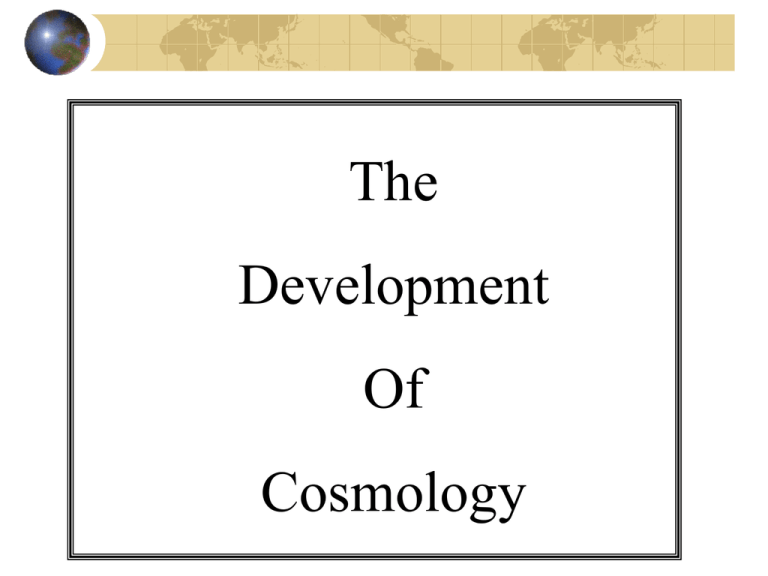
The Development Of Cosmology Pre-Socratic Philosophers Thales sixth century BC All matter can be reduced to water Heraclitus Everything is in a state of flux and therefore everything is subject to change Democritus fifth century BC Atomism All matter is made up of very small particles Plato All that we see and experience are copies of unseen realities Forms and Universals Implications for religious belief and science: the real is beyond what we experience in this world and is hidden in the eternal Aristotle 384–322BC A turn towards experience Metaphysics Four Causes Material Cause Formal Cause Efficient Cause Final Cause Profound influence on Christian thought through St Thomas Aquinas Aristotle continued Unmoved movers What causes something to move? Is this an infinite series? An uncaused cause? St Thomas Aquinas – Cosmological Argument: God is the uncaused cause of the world! Ptolemy of Alexandria second century BC Medieval Christian Cosmology Mixture of Biblical imagery, Plato, Aristotle and Ptolemy Ptolemy Earth is centre of the universe Surrounded by glass spheres on which planets and stars moved Ten spheres: seven for the planets, eighth was for stars, ninth was invisible and moved others, and tenth was the dwelling of God Ptolemy continued The Earth made of four elements Earth Water Air Fire Movement was a result of the tendency of the elements Movement of heavens is perfect and followed the perfect form, a circle Implications for later scientific theories! St Augustine of Hippo (354–430) God is reflected in his creation The highest feature of creation is the human person God is reflected in the human person Wonder at the splendour of creation should lead us to acknowledge the existence of God Precursor of the Argument from Design The Kalam Argument Kalam (Arabic): to argue or discuss Two Muslim scholars – al-Kindi (ninth century AD) and al Ghazali (1058–1111 AD) Cosmological – Seeks to prove God is the creator of the universe Kalam argument continued The present exists because at some point it began to exist The universe began to exist and must be finite Because the universe exists, it must have a cause for its existence Therefore the universe has a first cause of its existence That first cause is God St Thomas Aquinas 1224–1274 Brilliant philosophical and theological mind Developed a synthesis between Aristotle’s metaphysics and Christian theology Basis of his Five Ways into exploring the existence of God Natural philosophy and religion naturally open up into each other Aristotle’s Prime Mover/First Cause becomes central to the Christian view of the world
